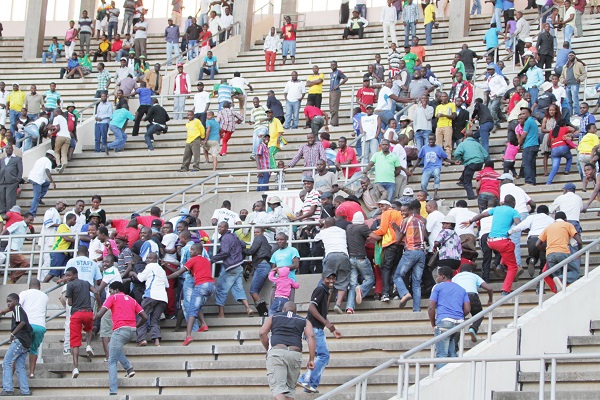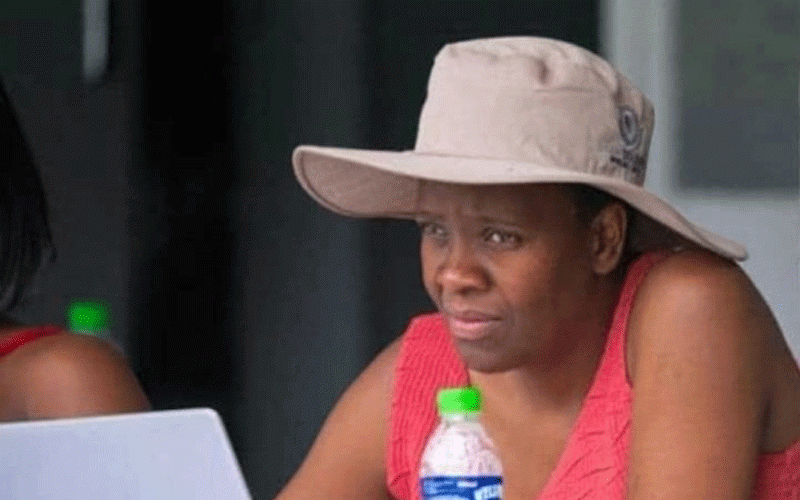
Inside sport with MICHAEL KARIATI
IN June 1999, all sorts of allegations were thrown around after the Confederation of African Football (Caf) withdrew Zimbabwe’s rights to host the 2000 Africa Cup of Nations (Afcon) finals.
Zimbabweans were made to believe that the small southern African nation was being victimised by the Caf leadership for defying a Caf decision by voting for Sepp Blatter in the 1998 Fifa polls against a Caf resolution to back Uefa football chief Lennart Johansson.
That decision to take away the Afcon finals was also taken as insult to southern African football with some accusing the then Caf president Issa Hayatou of favouring North and West Africa when it came to hosting of Africa’s biggest football gathering.
However, Caf made it clear that the reason for their decision was that an inspection team to Zimbabwe had found the country’s stadiums not fit to host the then 16-team African football festival resulting in their decision to move the tournament to Ghana, and Nigeria.
Just before Zimbabwe’s disqualification, Caf’s mouthpiece, the then London based African Soccer magazine had warned in their article titled “Grounds For Concern” that Zimbabwe faced losing the Nations Cup unless urgent attention was given to their stadia.
Nineteen years down the line, those at Caf must be laughing and telling Zimbabweans that ‘we told you but you could not listen’ after all but one of the stadiums, which were earmarked to host the 2000 Nations Cup finals was deemed fit to host international matches following a 2019 inspection by Caf.
What is even disturbing is that the National Sports Stadium, — which was earmarked to host the 2000 Nations Cup final — and Zimbabwe’s traditional football venue-Rufaro Stadium — have also been condemned, leaving Barbourfields Stadium as the only venue capable of hosting national team and club international games.
- Chamisa under fire over US$120K donation
- Mavhunga puts DeMbare into Chibuku quarterfinals
- Pension funds bet on Cabora Bassa oilfields
- Councils defy govt fire tender directive
Keep Reading
Surprisingly, the Zimbabwe Football Association had abandoned Barbourfields Stadium for the game against the Zebras of Botswana on the pretext that Caf had condemned the stadium, when in fact, the opposite was true.
In fact, it might not be a surprise if not long before Rufaro Stadium itself is found not fit to host even Castle Lager Premier Soccer League matches after failing to host a PSL league game between Black Rhinos and Ngezi Platinum Stars due to a waterlogged pitch following a heavy downfall.
Coincidentally, in 2000, the Africa Cup of Nations finals were supposed to be staged in January, during a period in which it would have been raining in Zimbabwe, raising questions whether the country would have managed to successfully host the best African football has to offer with stadiums like Rufaro.
What is disheartening about Rufaro Stadium is that the problems, which were highlighted during the 1999 Caf inspection visit are the same problems which the stadium is facing right now. The questions are:
Why were the renovations stopped after Caf withdrew Zimbabwe’s rights to host the 2000 Nations Cup finals? — Wasn’t Rufaro Stadium going to be a in a better position right now had the renovations been completed?
The same goes for Sakubva Stadium in Mutare. This stadium has been declared unfit to host Castle Lager Premier Soccer League matches, yet it had been chosen for the 2000 Nations Cup finals. Why were the renovations on Sakubva Stadium stopped after news broke out that Zimbabwe was no longer hosting the Nations Cup finals? — Wouldn’t this stadium be in the best shape right now had the renovations been completed as recommended?
Were the renovations and the touch-ups being done because Zimbabwe was hosting the Nations Cup finals or that they were being done to ensure that the stadiums were up to the required standards?
The latest developments have provided ammunition to those who would want to block Zimbabwe’s future hosting of major international football events or a possible Nations Cup co-hosting with neighbouring Zambia who are bidding for the 2025 Nations Cup edition.
The truth is that Zimbabweans are used to the fact that football problems always have something to do with the Zifa but the stadia issue is a football problem, which has nothing to do with those at 53 Livingstone Avenue.
This has something to do with the custodians of the stadiums, who have abandoned their own properties — That is the City of Harare in the case of Rufaro Stadium, and Gwanzura Stadium, and the ministry of Local Government in the case of the National Sports Stadium.
The question is: If the authorities cannot maintain just the pitch of a stadium, what else can they be able to do? What are they doing with all the money they are getting from football week — in and week – out?
One would have thought that for continued financial benefit both the City of Harare and the ministry would have reinvested the money they are getting from football into making the stadiums even more attractive.
Instead, that money is being spent on salaries for on-stadia staff and the purchase of luxurious vehicles when the stadiums are being left to rot, and in the process, threatening their other means of revenue.
What is ironic is the fact that the City of Harare are planning the construction of yet another 45 000 seater stadium when they are failing to take care of what they already have.
The effects of the stadia international ban does not hit football alone but Zimbabwe as a nation. How would the ministry and the city authorities feel when — one day — their own national team is forced to play in a foreign land because they could not do just a simple thing — of watering the lawn and later on cutting the grass to required levels?
What has happened to the National Sports Stadium and Rufaro Stadium is just a warning which the authorities should take seriously by addressing the concern raised as a matter of urgency. It would be cruel, one day, to see the Warriors using the Heroes Stadium in Zambia or the Kamuzu Stadium in Malawi, as their home ground, when there is the National Sports Stadium in Harare.
This might not be immediate — but at the rate things are going and Zimbabwe’s well documented slowness in addressing issues — it could, one day happen. — We have already been warned.
For your views, comments, and suggestions [email protected] or WhatsApp on 0773 266 779.











